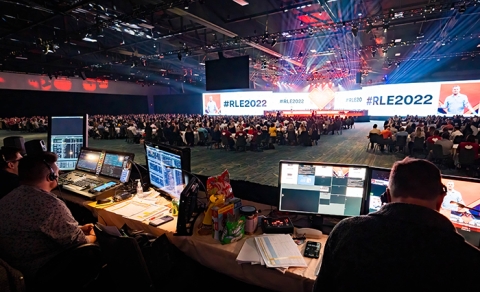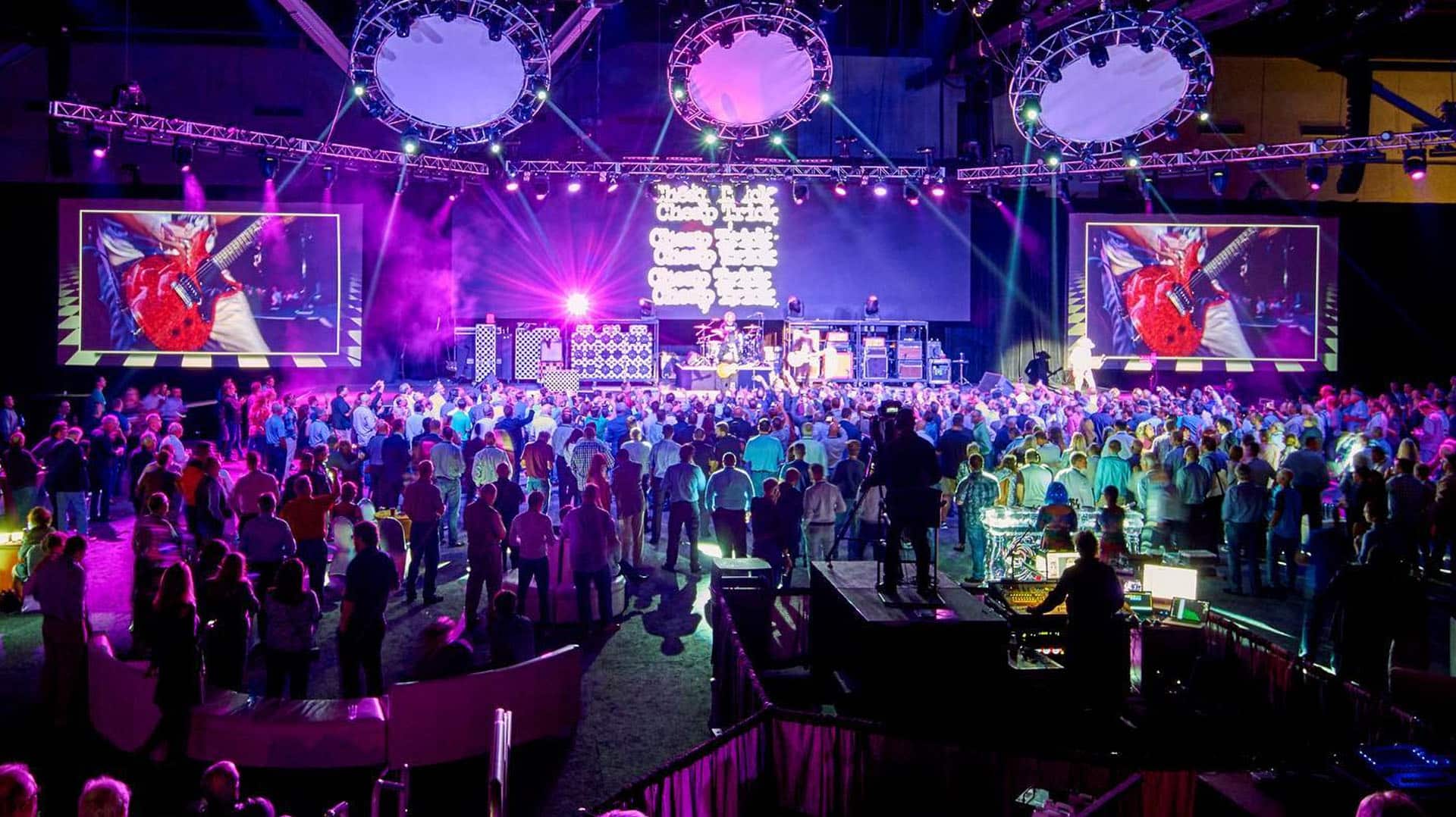Budget-Friendly Concepts to Improve Your Event Productions
Budget-Friendly Concepts to Improve Your Event Productions
Blog Article
Comprehending How Events Manufacturing Works: A Comprehensive Review of the Refine
The intricacies of event production demand a methodical method that integrates numerous phases, each playing an essential function in the overall success of an occasion. From the first planning and concept advancement to the thorough control of logistics, every component needs to straighten flawlessly to accomplish the wanted outcome. Understanding the subtleties of budgeting, source appropriation, and on-site administration is important for any expert in this area. As we discover these elements better, it ends up being apparent that the procedure is not simply about execution yet also about constant renovation and calculated evaluation. What understandings can we amass from each stage?
Preliminary Planning and Concept Advancement
Effective first planning and principle advancement act as the structure for effective events production. This phase entails defining the occasion's objective, target audience, and wanted end results. A clear vision is essential; it overviews all succeeding decisions and assists straighten the team's efforts toward an usual objective.
During this phase, brainstorming sessions can be very useful. Engaging stakeholders, including clients, sponsors, and potential attendees, cultivates a joint environment that produces innovative concepts. Furthermore, comprehensive market research study ought to be carried out to understand trends, choices, and potential difficulties.
As soon as the idea is established, it is critical to create a thorough event outline. This rundown needs to consist of the event's style, format, and vital activities. Establishing a timeline is similarly essential, as it helps to handle jobs and target dates efficiently.
Budgeting and Resource Allotment
With a strong idea in place, interest needs to transform to budgeting and resource allowance, which are important components in performing the occasion successfully. A well-defined spending plan serves as a roadmap, describing all expected expenses and offered sources - Event Productions.
Resource allotment entails assigning both human and financial sources to different jobs and components of the occasion. Prioritization is key; crucial aspects need to get ample funding while less important facets might require a more conservative strategy. Additionally, backup planning is important-- alloting a section of the allocate unexpected expenditures can reduce financial dangers.
On top of that, reliable interaction amongst staff member concerning spending plan restrictions cultivates collaboration and innovation. This advertises the accountable use of resources and encourages innovative options to remain within budget. Eventually, a calculated approach to budgeting and source allowance lays the foundation for a successful occasion, making it possible for planners to concentrate on delivering a memorable experience for participants while keeping monetary integrity.
Logistics and Control
Browsing the complexities of logistics and sychronisation is essential for the seamless implementation of any kind of occasion. This stage entails meticulous planning and organization to guarantee that all components operate in harmony. Crucial element consist of location option, transport setups, and the organizing of different tasks.
This includes recognizing the layout, accessibility factors, and readily available sources. Collaborating these components requires collaboration with vendors, providers, and transport services to make certain timely deliveries and pickups.
One more crucial element is the growth of an extensive timeline that lays out all logistical elements leading up to the occasion. This timeline functions as a roadmap, detailing crucial landmarks and deadlines for tasks such as equipment configuration, providing solutions, and audiovisual installations. Routine communication with all stakeholders is crucial to attend to any type of possible issues proactively.
Execution and On-Site Monitoring
Successful execution and on-site management are critical for changing thorough plans right into fact throughout an occasion. This stage includes the smooth control of different elements, making sure that every information aligns with the well-known vision. On-site managers play a critical duty, functioning as the central point of interaction amongst vendors, personnel, and stakeholders. Their capacity to make real-time decisions can substantially impact the occasion's success.
A well-defined routine is crucial, acting as a roadmap for all tasks. Event managers need to ensure that configuration takes place on time, adhering to timelines for sound checks, catering deliveries, and guest arrivals. Effective analytic skills are likewise important; unforeseen difficulties can occur, calling for fast reasoning and flexibility to preserve the event's circulation.
Additionally, attention to guest experience is critical. Monitoring visitor communications, making certain safety protocols are followed, and offering assistance team to attend to concerns cultivates a positive ambience. This level of interaction not only boosts the overall experience but also shows the professionalism and reliability of the occasion group. Event Productions. Ultimately, successful implementation and on-site management hinge on comprehensive preparation, efficient interaction, and a commitment to providing a phenomenal event for all included.

Post-Event Evaluation and Feedback
The end result of any kind of event exists not just in its execution yet also in the detailed analysis that follows. Post-event assessment is important for identifying the total success of the event and recognizing locations for enhancement. This process usually involves celebration comments from different stakeholders, consisting of guests, vendors, and staff member, to gain a comprehensive viewpoint on their experiences.
To structure the analysis, event coordinators commonly make use of surveys and meetings, concentrating on vital performance signs such as guest fulfillment, logistical effectiveness, and budget plan adherence. Analyzing this data allows coordinators to assess whether the event find this fulfilled its goals and to comprehend the toughness and weaknesses of the implementation.
By methodically dealing with responses and carrying out modifications, occasion specialists can improve their techniques, eventually leading to more successful and impactful occasions. In final thought, post-event evaluation is an important step in the event production process that makes sure recurring see page development and excellence in future undertakings (Event Productions).
Verdict

The complexities of event production demand a methodical technique that integrates several phases, each playing an important duty in the overall success of an event.With a strong concept in location, attention has to turn to budgeting and source allocation, which are vital parts in carrying out the event effectively.Source allotment involves designating both economic and human resources to numerous tasks and parts of the event. Inevitably, a calculated method to budgeting and source allocation great site lays the foundation for an effective event, making it possible for coordinators to concentrate on providing an unforgettable experience for participants while maintaining financial stability.

Report this page